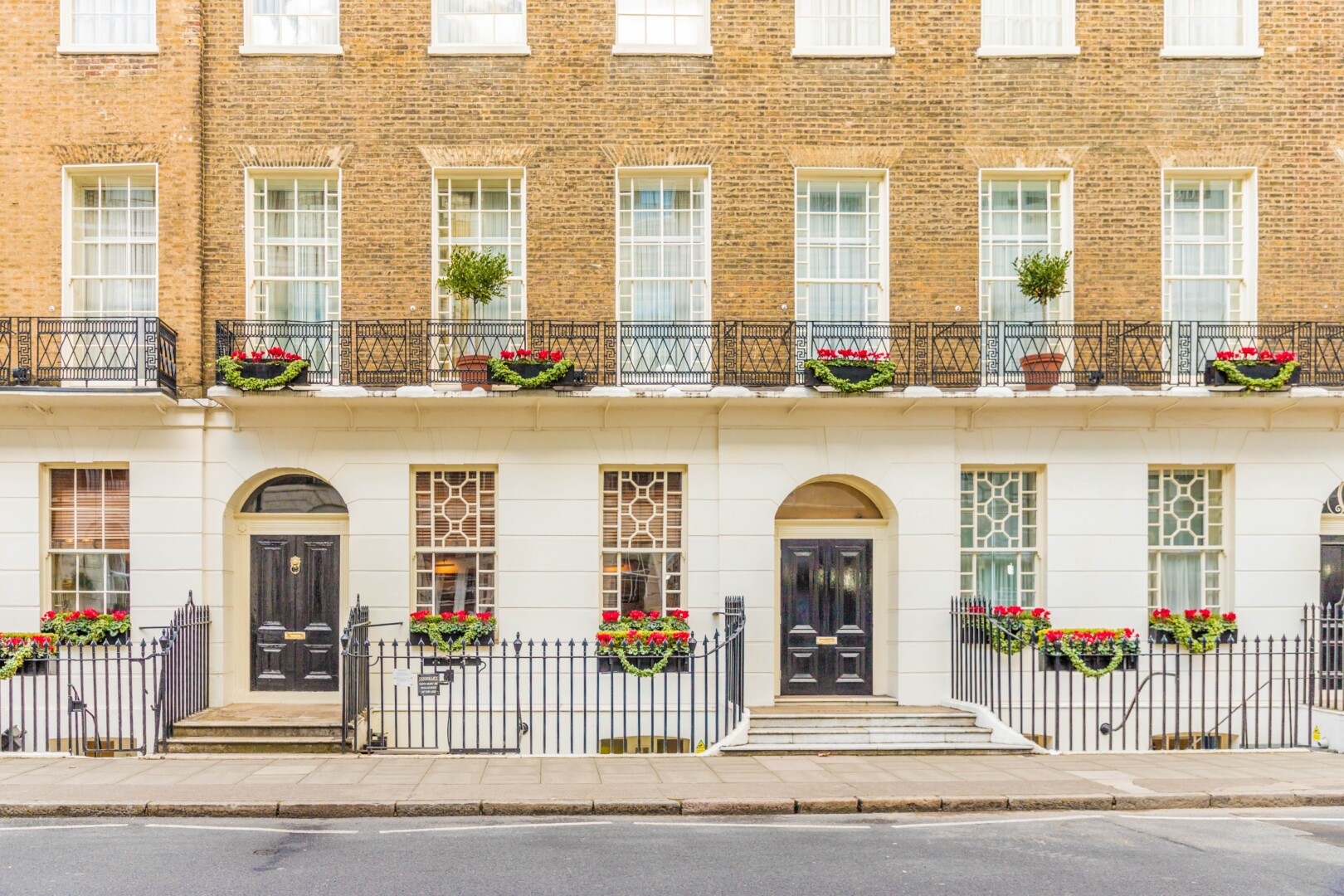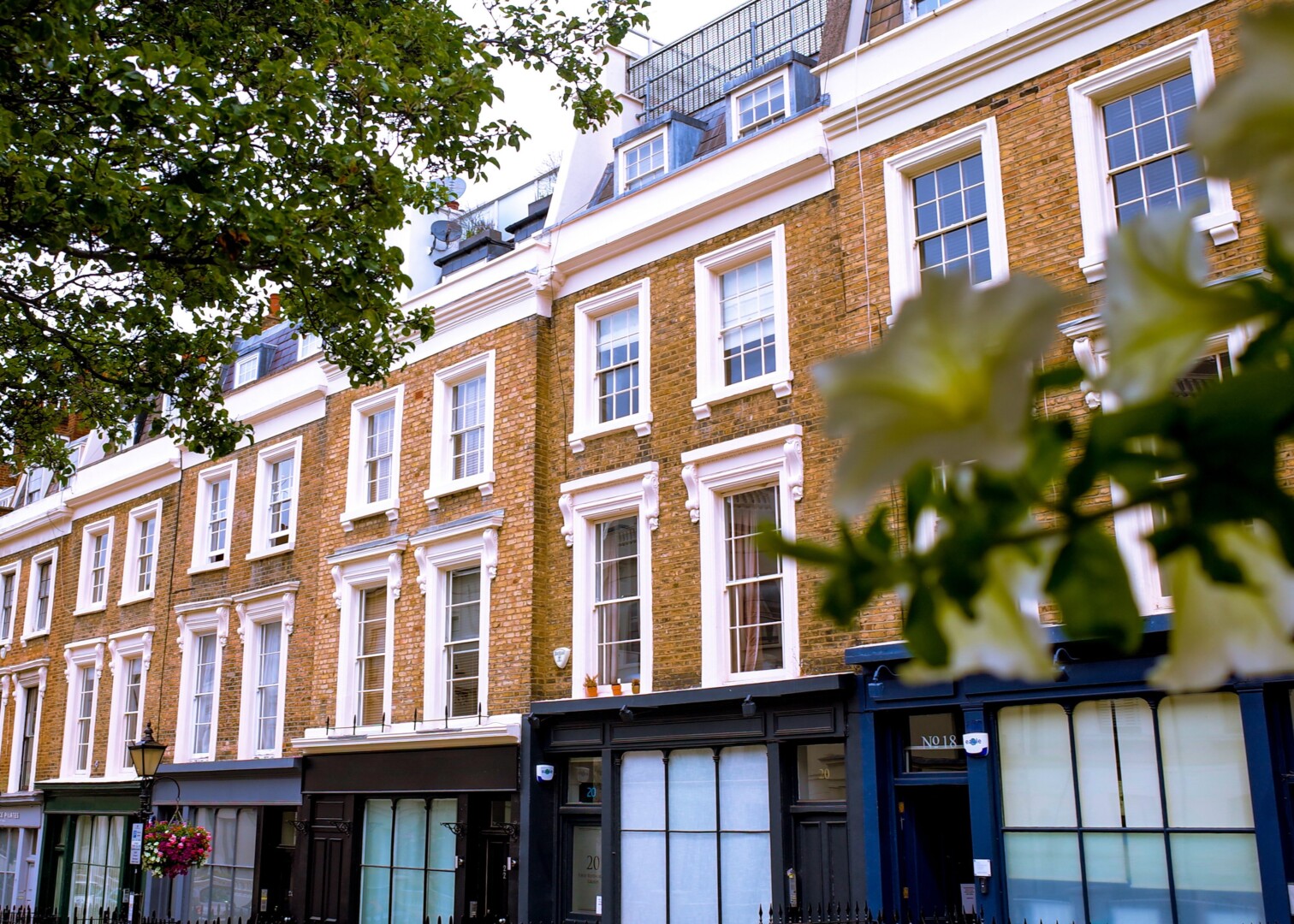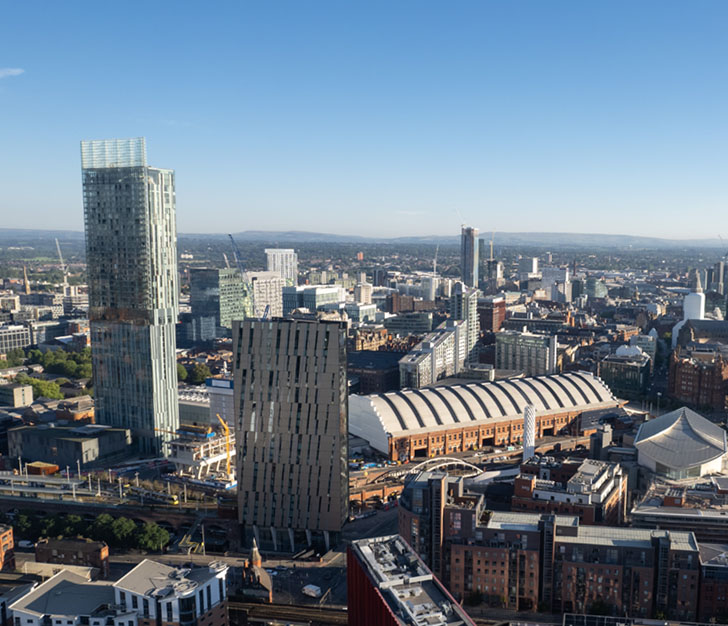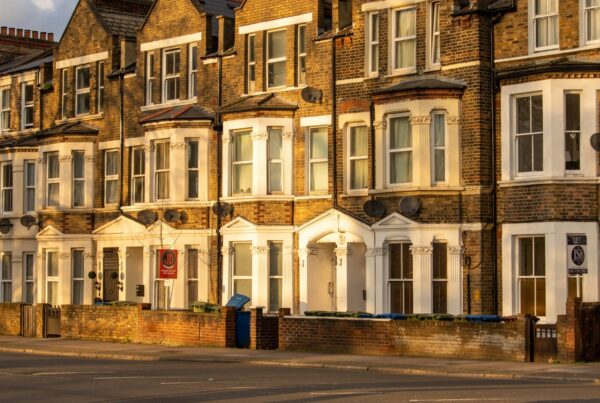With 2025 shaping up to be a year of significant global change, savvy investors are seeking stability and diversification for their portfolios. While the international landscape might seem uncertain, the UK property market continues to offer a compelling proposition for buy-to-let investors seeking strong returns and a secure asset class.
Boasting a stable economy, robust demand for rental properties, and a diverse range of investment options, the UK offers a unique combination of factors that make it an attractive location for property investors worldwide.
Whether you’re a seasoned investor or just starting your journey into property investment, our guide will help you understand the benefits, challenges, and nuances of investing in the UK buy-to-let market.
If you’re ready to take the next step or have any questions, Alesco is ready to help.
How to Buy a UK Property as an International Investor

BENEFITS OF INVESTING IN UK BUY-TO-LET PROPERTY
As an international investor, you have a plethora of property markets to choose from when deciding where to invest your hard-earned capital. However, the UK buy-to-let market has consistently stood out as a top choice for many investors worldwide.
Let’s look at some of the key benefits that make the UK buy-to-let property market an attractive option for international investors.
- Strong rental demand: With a growing population, limited housing supply, and an increasing number of people opting to rent rather than buy, the UK continues to experience robust rental demand. This high demand for rental properties can translate into steady rental income and lower vacancy rates for buy-to-let investors.
- Stable and transparent property market: The UK property market is known for its stability, transparency, and accessibility. The legal system is well-established and protects the rights of both landlords and tenants, making it an ideal environment for international investors.
- Capital growth potential: Historically, UK property prices have shown a long-term upward trend, providing potential for capital appreciation. While there are no guarantees, investing in the right location and property type can contribute to the growth of your investment over time.
- Diverse investment opportunities: The UK offers a wide range of property investment options, from city-centre apartments to suburban family homes and student accommodations. This diversity allows you to tailor your investment strategy to suit your risk appetite and financial goals.

KEY FACTORS AFFECTING THE UK BUY-TO-LET MARKET
To make informed investment decisions, it’s essential to understand the factors that influence the UK buy-to-let market. Here are some of the most important factors:
- Economic factors: Like any property market, the UK’s buy-to-let market is influenced by the country’s overall economic health. Economic growth, employment rates, and inflation can all impact property prices and rental demand.
- Government policies: Changes in government regulations, taxation, and housing policies can affect the buy-to-let market. It’s essential to stay informed about these changes and adapt your investment strategy accordingly.
- Supply and demand: The balance between property supply and demand in various regions and cities can influence rental yields and capital growth potential. Researching local market conditions will help you identify high-potential investment locations.

Areas of consideration for international investors
Investing in the UK buy-to-let market is not without challenges, especially for international investors. Fortunately, property investment companies like Alesco can make it much easier. Let’s address some of the potential hurdles you may face in your investment journey:
- Market fluctuations: While the UK property market has historically shown long-term growth, it’s not immune to short-term fluctuations. It’s essential to be prepared for potential market downturns and have a long-term investment strategy in place.
- Regulatory and tax changes: As an international investor, you may face additional challenges when it comes to navigating the UK’s tax and regulatory environment. Ensuring compliance with local laws and staying updated on changes is crucial to avoid potential pitfalls.
- Currency risk: Fluctuations in exchange rates between your home currency and the British Pound can impact your investment returns. Implementing currency risk management strategies can help minimise potential losses due to exchange rate volatility.

CHOOSING THE RIGHT PROPERTY AND LOCATION
Finding the right property in the perfect location is crucial to the success of your buy-to-let investment. Key considerations include the different types of high-demand properties, key considerations for international investors and how to research the UK property market to identify high-potential locations for investment.
TYPES OF PROPERTIES IN HIGH DEMAND
Understanding the preferences of renters and identifying properties in high demand can significantly impact your rental income and overall investment returns. These are some of the most sought-after property types in the UK rental market:
- City-centre apartments: Professionals and young adults often prefer modern, well-connected city-centre apartments with access to amenities and transport links.
- Suburban family homes: Families typically look for spacious suburban homes with gardens located in safe neighbourhoods and within proximity to good schools.
- Student accommodation: Purpose-built student accommodations or houses in multiple occupation (HMOs) near universities are popular among students seeking affordable, convenient living arrangements.
KEY CONSIDERATIONS FOR INTERNATIONAL INVESTORS
As an international investor, there are specific factors you should keep in mind when choosing a property and location in the UK. Here are some of these considerations:
- Rental yield: Focus on locations with strong rental demand and higher rental yields to maximise your rental income.
- Capital growth potential: Look for areas with upcoming infrastructure projects, regeneration schemes, or a growing local economy, as these can positively impact property prices.
- Local amenities and transport links: Properties near schools, shops, hospitals, and transportation hubs tend to be more attractive to renters and can command higher rents.
- Safety and neighbourhood reputation: A safe and well-regarded neighbourhood can not only help attract quality tenants but also contribute to long-term capital growth.
IDENTIFYING HIGH-POTENTIAL LOCATIONS FOR INVESTMENT
To maximise your investment returns, it’s crucial to identify locations with high growth potential. Here are some strategies to help you pinpoint promising areas:
- Look for regeneration areas: Regions with ongoing or planned regeneration projects often experience an increase in property values and rental demand.
- Focus on transport hubs: Locations with excellent transport links and planned infrastructure improvements tend to attract renters and support property price growth.
- Identify up-and-coming areas: Track areas with increasing rental demand, improving amenities, and a growing local economy, as these can signal future growth potential.

Financing Your Investment
Securing the right financing for your UK buy-to-let property is a crucial step in your investment journey. Here, we’ll explore different financing options available to international investors, discuss how to obtain a mortgage in the UK and touch upon currency exchange and risk management strategies.
OBTAINING A MORTGAGE IN THE UK AS AN INTERNATIONAL INVESTOR
Getting a mortgage as an international investor can be challenging, but it’s not impossible. These are the key steps and factors to consider when seeking a mortgage in the UK.
- Research lenders: Not all UK lenders offer mortgages to international investors, so it’s essential to identify those that do and compare their terms and rates.
- Seek professional advice: Engaging a mortgage broker with experience in helping international investors can be invaluable in navigating the complex mortgage landscape. Better yet, consider partnering with an experienced property investment agency.
- Prepare your documents: Lenders will require proof of income, credit history, and other financial documents to assess your eligibility for a mortgage. Ensure you have these documents readily available.
- Consider deposit requirements: International investors may face higher deposit requirements, typically ranging from 25% to 40% of the property’s value.
ALTERNATIVE FINANCING OPTIONS FOR INTERNATIONAL INVESTORS
If obtaining a mortgage isn’t feasible or desirable, consider these alternative financing options for your UK buy-to-let property investment:
- Cash purchase: If you have the necessary funds, a cash purchase can simplify the buying process and make your offer more attractive to sellers.
- Equity release: If you own property in your home country, you may be able to release equity from that property to finance your UK investment.
- Joint ventures or partnerships: Partnering with other investors can help you pool resources, share risks, and access better financing options.
CURRENCY EXCHANGE AND RISK MANAGEMENT STRATEGIES
Currency fluctuations can have a significant impact on your investment returns. Not to worry, we’d like to offer some strategies to help you manage currency risk:
- Currency broker: Engage a currency broker to help you secure competitive exchange rates and minimise transaction costs.
- Forward contracts: Consider using forward contracts to lock in an exchange rate for a future transaction, reducing the impact of currency fluctuations.
- Diversification: Diversifying your investment portfolio across different currencies and markets can help spread currency risk and reduce potential losses.

NAVIGATING THE BUYING PROCESS AS AN INTERNATIONAL INVESTOR
The buying process for a UK buy-to-let property can be complex, particularly for international investors. Working with a UK-based property investment company like Alesco will make the process much easier.
Let’s take a look at some of the essential steps on making an offer, closing the deal, and complying with UK tax and legal requirements.
MAKING AN OFFER AND CLOSING THE DEAL
Once you’ve identified the ideal property, it’s time to make an offer and secure the deal. Here are the key steps involved:
- Make an offer: Submit your offer to the seller through your real estate agent, who can help you negotiate the best possible terms.
- Mortgage application: If you’re financing your investment with a mortgage, submit your application and provide the required documentation to your chosen lender.
- Surveys and inspections: Arrange for property surveys and inspections to identify any potential issues and ensure the property is in good condition.
- Exchange contracts: Once all the necessary checks have been completed, your solicitor will exchange contracts with the seller’s solicitor, making the agreement legally binding.
- Completion: On the agreed completion date, your solicitor will transfer the remaining funds to the seller, and you’ll receive the keys to your new buy-to-let property.
COMPLYING WITH UK TAX AND LEGAL REQUIREMENTS
As an international investor, it’s essential to be aware of the UK tax and legal requirements related to property ownership. These are the main things to keep in mind if you’re a foreign investor looking to invest in UK property:
- Stamp Duty Land Tax (SDLT): You may be required to pay SDLT on your property purchase, depending on the property’s value and your individual circumstances.
- Non-Resident Landlord Scheme: If you’re living abroad for more than six months per year, you must register with the Non-Resident Landlord Scheme to ensure compliance with UK tax obligations on rental income.
- Annual Tax on Enveloped Dwellings (ATED): If your property is owned through a company or other non-natural entity, you may be liable for ATED, an annual tax based on the property’s value.
- Capital Gains Tax (CGT): When you eventually sell your UK property, you may be subject to CGT on any profit made.

MANAGING AND MAXIMISING YOUR INVESTMENT
Effectively managing your UK buy-to-let property is crucial to maximising returns and ensuring a successful investment. Keeping that in mind, let’s discuss marketing and renting out your property, maintaining and upgrading your property, and strategies for exiting your investment.
MARKETING AND RENTING OUT YOUR PROPERTY
Attracting quality tenants and securing a consistent rental income are essential for a profitable buy-to-let investment. Here are some tips for marketing and renting out your property:
- Professional photography: High-quality photos showcasing your property’s best features can make a significant difference in attracting potential tenants.
- Online advertising: List your property on popular UK property websites and social media platforms to reach a wider audience of potential tenants.
- Local letting agents: Engage a local letting agent to help market your property, conduct viewings, and screen prospective tenants.
- Competitive pricing: Research local rental rates and price your property competitively to attract tenants and minimise vacancies.
MAINTAINING AND UPGRADING YOUR PROPERTY
Regular maintenance and strategic upgrades can enhance your property’s appeal, increase rental income, and contribute to long-term capital growth. These are some of our suggestions for maintaining and upgrading your property investment:
- Regular inspections: Schedule periodic inspections to identify any maintenance issues and ensure your property remains in good condition.
- Preventative maintenance: Address minor repairs and maintenance promptly to avoid more significant problems and expenses down the line.
- Targeted upgrades: Consider strategic upgrades, such as kitchen and bathroom renovations or energy efficiency improvements, which can add value and justify higher rental rates.
- Property management: If you can’t manage the property yourself, consider hiring a property management company to handle maintenance, tenant issues, and rent collection on your behalf.
EXITING YOUR INVESTMENT: SELLING, REFINANCING, OR EXITING THE UK MARKET
Whether you’re looking to sell your property, refinance, or exit the UK market, having a well-planned exit strategy is essential. Here various exit options and considerations for you to keep in mind:
- Selling your property: When the time comes to sell, work with a local estate agent to market your property effectively, and consult your solicitor to handle the legal aspects of the sale.
- Refinancing: If you wish to release equity from your property or take advantage of better mortgage rates, refinancing could be a viable option. Speak with a mortgage broker to explore your options.
- Exiting the UK market: If you decide to exit the UK market entirely, be sure to seek professional tax and legal advice to ensure a smooth transition and compliance with all relevant regulations.
ACHIEVE YOUR GOALS WITH THE RIGHT PROPERTY INVESTMENT PARTNER
Investing in the UK buy-to-let property market offers a wealth of opportunities for international investors seeking to diversify their portfolios and generate attractive returns. By understanding the benefits and challenges of investing in the UK, selecting the right property and location, securing appropriate financing, navigating the buying process, and effectively managing your investment, you can make the most of these opportunities and achieve long-term success.
To ensure a seamless investment experience, we highly recommend partnering with a reputable property investment agency with a proven track record of working with foreign investors. A knowledgeable agency can provide invaluable guidance and support throughout your investment journey, from identifying high-potential properties and securing financing to managing and eventually exiting your investment.
By leveraging the expertise of an experienced property investment agency, you can confidently navigate the UK buy-to-let market and maximise your returns, turning your investment dreams into reality. Get in touch with us today to see where your potential investments can take you.

Written by: James Needham
Experienced Team Lead with a demonstrated history of working in the real estate industry.













